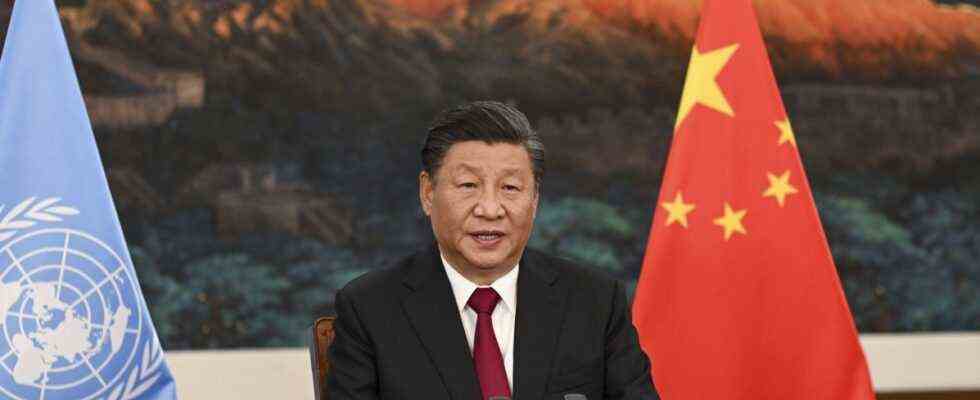For the Chinese Communist Party, it was the correction of a historical injustice. On October 25, 1971, the People’s Republic took the China seat at the United Nations, 26 years after the founding of the organization – instead of Taiwan. In fact, it is unprecedented that Beijing has been using its influence to this day to politically isolate today’s democracy off its coast and prevent it from being represented in important forums such as the World Health Organization. The People’s Republic willingly endangered the lives of millions of people in the pandemic.
Nevertheless, the decision was consistent 50 years ago. A quarter of the world’s population was not represented in the UN General Assembly until then, no longer justifying Washington’s longstanding resistance to membership of the nuclear power Beijing. The move not only strengthened the legitimacy of the communist regime, but also that of the United Nations.
Your own sovereignty is paramount
Nevertheless, the free world underestimated the consequences that this one-party state’s increased engagement would have for the United Nations. While the USA has increasingly withdrawn from international organizations in recent years, the Chinese Communist Party has made use of this void. Today the country pays the second highest contribution to the total UN budget and to the peacekeeping forces, both after the USA. At the same time it sends more soldiers than the other four veto powers USA, Russia, Great Britain and France combined.
Party leader Xi Jinping stages his country as the protective power of the international order and multilateralism. The opposite is true. If he has his way, the global set of rules must reflect the new balance of power in the world. Beijing’s vision is clear: the United Nations should not act independently or even intervene, but rather be the servants of the member states. Xi Jinping insists on the doctrine of non-interference in everything he considers to be the internal affairs of a state. Own sovereignty is paramount – an approach that sounds seductive to many autocratic regimes around the world.
As a consequence, this means that national crises as well as violence and persecution of individuals should no longer be understood as a threat to global peace and security. Because from Beijing’s point of view there is no need for universal human rights or the rule of law; the state alone serves as a peacekeeper. The first consequences can already be seen when China tries again and again to cut funds for the development of civil society structures in the UN budget.
To strengthen its agenda, China has increased the number of its UN diplomats in recent years. On the one hand, the country had some catching up to do. At the same time, the regime leaves no doubt that its representatives should not feel obliged to the organization but to their own country. In addition, no country has raised so many of its own people into top positions in UN organizations where they have had a significant influence on decisions in the interests of China. Taiwan’s growing isolation in the world is just one example.
Even Beijing’s crimes are now being defended in a UN body
Beijing has expanded its influence to such an extent that not only its “New Silk Road” has become an official part of the UN’s sustainable development goals. No one obstructs the work of non-governmental organizations within the UN as aggressively as China. Civil society representatives who are committed to human rights are particularly affected. But organizations that work on issues that are harmless to China also have to position themselves under pressure from Beijing on conflicts such as Taiwan and Tibet. Otherwise, they run the risk of losing their advisor status.
In the UN Human Rights Council, whose task it is actually to denounce human rights violations, Beijing has advanced its influence to such an extent that it not only gathers a large number of supporters behind it to defend its crimes on issues such as the Uyghurs and Hong Kong. The council really serves as a platform for the country to promote its understanding of human rights.
Because Beijing no longer suppresses human rights only in its own country. As early as 2015, Xi Jinping presented his bulky sounding idea of a “community with a shared future for humanity”. Wrapped up in fine words, his regime is attempting to put the right to development above the rights to freedom and democracy. The concept is not an effort to develop the Universal Declaration of Human Rights, but a direct attack on it.
Fifty years after China’s accession, it is clearer than ever what Beijing is striving for: a United Nations according to its ideas and on its terms.

